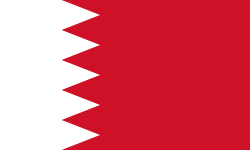Al-Gharafa Sports Club
 | ||||
| Full name | Al-Gharafa Sports Club | |||
|---|---|---|---|---|
| Nickname(s) | Al Fuhud (The Cheetahs) | |||
| Founded | 6 June 1979 as Al-Ittihad, 2004 as Al-Gharafa | |||
| Ground |
Al-Gharafa Stadium Doha, Qatar | |||
| Capacity | 25,000 | |||
| Chairman | Hamad bin Thamer | |||
| Manager | Pedro Caixinha | |||
| League | Qatar Stars League | |||
| 2013–14 | Qatar Stars League, 9th | |||
|
| ||||
Al-Gharafa Sports Club (Arabic: نادي الغرافة الرياضي) is a Qatari sports club based in the Al Gharafa district of Al Rayyan. It is primarily known for its football team, although it also has teams for other sports. It was established on 6 June 1979 as Al-Ittihad and later officially incorporated into the Qatar Football Association on 23 September that same year. The club was officially renamed to its current form in 2004 to better represent the district of Al-Gharafa, which the club belongs to.
The idea of creating the new club that would represent Gharafat Al-Rayyan sparked from a group of young Qataris in 1978. Most notably, people like Sheikh Mohammed bin Jassim Al-Thani, Sheikh Hamad bin Jassim Al-Thani, Sheikh Hamad bin Faisal Al-Thani, Sheikh Ali bin Abdullah Al-Thani and Saad Mohammad Al-Rumaihi.[1] In a documentary produced by Al Kass sports channel about the history of the club, Sheikh Hamad bin Jassim mentioned that the idea was suggested by Saad Al-Romaihi initially who was working as a sports journalist at Al Raya newspaper.
History
1980–2000
Al-Gharafa Sports Club was founded on 6 June 1979 and was formally created on 23 September 1979 as Al-Ittihad by the first president of the board of directors, Khalifa Bin Fahad Bin Mohammed Al-Thani (1979–1982) under resolution no. 9. Al-Gharafa was founded with the intent of creating sports facilities for the youth in the Al-Gharafa region. It did not occur to the leaders that Al-Gharafa would become as tremendously successful as it is today. The name "Al-Ittihad", which when translated into English, means "United", was chosen in the spirit of the brotherhood and solidarity that characterized the club and its leaders. Yellow and blue were selected as the club colors due to the founders' endearment towards the Brazilian national team.[1] Al-Gharafa owes much of its success in the early years to the financial and material support of its Sheikh leaders.[2]
As Al-Gharafa was established relatively late compared to other Qatari clubs at the time, it was sent to the Qatari 2nd Division. It dominated the league and won the title on its debut in the 1979/80 season with Egyptian coach Mahmoud Abu Rujaila, as well three more times, the second by defending the championship in the 1980/81 season, and the third in the 1983/84 season, which, subsequently, was the year that their youth team had also won the league. Their first foreign player was Faisal Hannan, a Sudanese footballer who agreed to a contract one year prior to the club's establishment. Additionally, they won the 1986/87 season of the 2nd Division, allowing them to play in the 1987–88 season of the Qatar Stars League. The club ended up winning its first Stars League title in 1991–92, breaking the 16-year deadlock between the three dominant Qatari clubs Al-Arabi, Al Sadd, and Al-Rayyan. Al-Gharafa's youth team also won the league a year later in the 1992/93 season. The club were runners-up in 1994 to Al-Arabi, before winning the Emir of Qatar Cup 4 times in a row, from 1995 til 1998.
The club won the league for the second time in the 1997/98 season with 32 points after they edged Al-Rayyan by a margin of 3 points. Al-Rayyan finished runners-up, with Al Sadd in third place. The very next year they finished runners-up to Al-Wakrah, however, Al-Gharafa who had the best goal difference.
2000–2005
On Friday, 28 April 2000, in Khalifa International Stadium, Al-Gharafa won their first Qatar Crown Prince Cup. The match had ended goalless before they beat Al-Rayyan 9–8 in a dramatic penalty shoot-out. They were led by Adel Khamis, the long-time captain of the team. Al-Gharafa also won the Crown Prince Cup in 2010 and 2011.
They won the league championship in the 2000–01 season by defeating Al Sadd in their last game on 1 May 2001 by a scoreline of 1–0. After the match, Tamim bin Hamad Al Thani, then chairman of the olympic committee, delivered an award to Adel Khamis, as well as gold medals to the whole team and a sum of 500,000 Qatari riyals to the club. Rachid Amrane also won the league top goalscorer with a tally of 16 goals.
2005–present
The Qatar Stars League was revamped in the 2004/05 season, with many clubs changing their names (including Al-Gharafa), as well as changing the number of games played each season from 18 to 27. The club won the league this year, with only 1 loss from 27 games, bringing their point tally to 66, which was 14 more than the runners-up, Al-Rayyan. They also won their first Sheikh Jassem Cup that year, on 12/9/2005, after defeating Al Ahli 2–1, courtesy of goals from Rodrigo and Fahad Al Shammari.
The next year they were unsuccessful in retaining the league championship, only finishing runners-up to Al Sadd. Although the next season, they won the league once more, besides scoring the highest number of goals in a season with 72 goals, mainly thanks to the efforts of Araújo, who scored 27 goals that season, shattering Gabriel Batistuta's record of 25.
Stadium
Al Gharafa plays its home games at Thani bin Jassim Stadium which is situated in the Al Gharafa suburb of Al Rayyan. The stadium holds 27,000 people and was built in 2003. The stadium hosted 2011 AFC Asian Cup and other international competitions. It is planned to expand the existing 27,000 capacity to 44,740 for the 2022 FIFA World Cup.[3]

Youth development
Al Gharafa has one of the largest youth development programmes in the country. It recruits youth players for every age bracket available, and has produced national team players from its academy. They regularly visit local schools, as well as hold school tournaments, and offer students trials. Currently there are approximately 350 players in the club's youth ranks, with 100 players in its academy, and 240 players in grass roots. Break-up is as follows (as of 2013):[4]
- Break-up of all youth players
| Total number of youth players | Playing in national teams | In ASPIRE |
|---|---|---|
| | | |
- Break-up of academy players
| Category | U–19 | U–17 | U–15 | U–14 | Total no. of players |
|---|---|---|---|---|---|
| Number of players | | | | | |
| Number of trainers | | | | | |
| Training sessions/week | | | | |
- Break-up of grass–roots players
| Category | U–12 | U–11 | U–10 | U–9 | U–8 | U–7 | U–6 | U–15 | Total no. of players |
|---|---|---|---|---|---|---|---|---|---|
| Number of players | | | | | | | | | |
| Number of trainers | | | | | | | | | |
| Training sessions/week | | | | | | | | |
Achievements
- Winners (7): 1992, 1998, 2002 (as Al-Ittihad), 2005, 2008, 2009, 2010
- Winners (4): 1980, 1982, 1984, 1987 (as Al-Ittihad)
- Winners (7): 1995, 1996, 1997, 1998, 2002 (as Al-Ittihad), 2009, 2012
- Winners (3): 2000 (as Al-Ittihad), 2010, 2011
- Winners (1): 2009 (Shared Record) (Defunct)
Performance in AFC competitions
Players
As of Qatar Stars League:
Players with Multiple Nationalities
-

 Qasem Burhan
Qasem Burhan -

 Jalall Al Din Omar
Jalall Al Din Omar -

 Mohammed Ezzedin
Mohammed Ezzedin -

 Almahdi Ali Mukhtar
Almahdi Ali Mukhtar -

 George Kwasi
George Kwasi 
 Aden Ali Aden
Aden Ali Aden-

 Lawrence Quaye
Lawrence Quaye -

 Ahmed Sayyar
Ahmed Sayyar -

 Hussain Shehab
Hussain Shehab -

 Adel Ahmed
Adel Ahmed -

 Mohammed Muntari
Mohammed Muntari
Players registered as professionals
QSL clubs are limited to 4 foreign professionals (3 + 1 Asian) per squad.[5]
|
Professional players |
Non-professional foreigners
|
Notable players
This list includes players whom have made significant contributions to their national team and to the club. At least 100 caps for the club or their national team is needed to be considered for inclusion. Updated 17 December 2014.
|
Local players
|
Foreign players
|
Personnel
Last update: 30 December 2015.[6]
| ||||||||||||||||||||||||||||
Club officials
Management
| Position | Staff |
|---|---|
| President | Sh. Hamad bin Thamer Al Thani |
| Vice-President | Sh. Khalid bin Ahmed Al Thani |
| Treasurer | Sh. Thani bin Thamer Al Thani |
| General Secretary | Jassem Al Mansouri |
| Vice Secretary | Ahmed Al Shehhi |
| Board member | Sh. Abdulaziz bin Jassim Al-Thani |
| General Secretary | Sh. Hamad bin Mohammed Al Thani |
| General Secretary | Sh. Abdullah bin Khalifa al-Thani |
| General Secretary | Sh. Abdullah bin Hamad al-Thani |
Last updated: 18 December 2014
Source: Board of Directors
Presidential history
Last update: December 2014.[2]
| Years | Chairman |
|---|---|
| Sep 1979 – May 1982 | |
| May 1982 – May 1984 | |
| May 1984 – May 1989 | |
| May 1989 – May 1991 | |
| May 1991 – May 1992 | |
| May 1992 – May 2001 | |
| May 2001 – May 2005 | |
| May 2005 – | |
Managerial history
Last update: June 2014.[2][7][8]
- Notes
- Note 1 denotes caretaker role
|
|
References
- 1 2 "الغرافة أسس على الحب والترابط وروح الأسرة الواحدة". raya.com. 31 January 2013. Retrieved 17 December 2014.
- 1 2 3 4 "تاريخ النادي". algharafa.com. Retrieved 17 December 2014.
- ↑ "Thani bin Jassim Stadium". worldcupstadiums.net. Retrieved 17 December 2014.
- ↑ "Al Gharafa Football Club (AFC Inspection visit)" (PDF). qslm-license.com. Retrieved 6 May 2013.
- ↑ "اعتماد تسجيل أربعة لاعبين أجانب في الموسم الجديد". alkass.net. 17 June 2014. Retrieved 17 June 2014.
- ↑ "Staff – football" (in Arabic). Al Gharafa. Retrieved 17 December 2014.
- ↑ "مسابقة كأس سمو الأمير لكرة القدم المباريات النهائية". alkass.net. Retrieved 17 December 2014.
- ↑ "تاريخ بطولة كأس سمـــــــو ولي العهد". alkass.net. Retrieved 17 December 2014.
- ↑ "Interview with Faisal Hannan". algharafa.net. 15 March 2013. Retrieved 17 December 2014.
- ↑ "مع احترامي للريان والجيش.. الكأس الغالية غرفاوية". kooora.com. 17 May 2011. Retrieved 17 December 2014.
- ↑ "Qatar's Al Ittihad takes on Al Ain today". gulfnews.com. 8 January 2001. Retrieved 17 December 2014.
- ↑ "طموح السد "التحليق" في صدارة قطر". daharchives.alhayat.com. 5 December 2003. Retrieved 17 December 2014.
External links
| ||||||||||||||||||||||
| ||||||